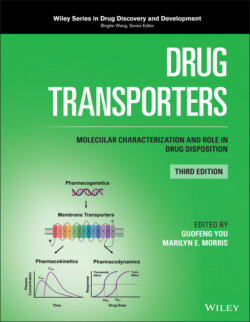Читать книгу Drug Transporters - Группа авторов - Страница 63
2.9.4 Human Genetic Studies
ОглавлениеBiallelic loss‐of‐function mutations in OCTN2 result in a Mendelian disease known as carnitine transporter deficiency (CTD, also referred to as primary carnitine deficiency, systemic carnitine deficiency, or carnitine uptake defect; OMIM #212140) [67]. Almost 200 OCTN2 mutations have been identified among patients, the majority of which are missense, followed in frequency by nonsense, frameshift, and noncoding mutations that affect splice sites or regulatory regions [88]. Systemically, patients display extremely low plasma carnitine levels caused by reduced dietary carnitine absorption and excessive carnitine wasting in the urine due to loss of reabsorption by OCTN2 [97]. The disorder varies in time to onset and disease severity and/or presentation, with common symptoms including cardiomyopathy, cardiac arrhythmias, hepatic encephalopathy, and hypoglycemia. Missed diagnosis can be fatal in infants, thus many developed countries screen infants for CTD, among other disorders, at birth. Diagnosis in individuals with less severe disease can be delayed well into adulthood, exemplified by the identification of maternal carnitine deficiency from low carnitine levels in the newborn during screening. CTD is treated with supplemental carnitine at high doses, up to 200 mg/kg multiple times per day, with decent outcomes. Lack of adherence to treatment has resulted in sudden death in at least one report. Incidence of CTD varies globally, affecting 1:120,000 individuals in Australia, 1:75,000 in the United States, 1:40,000 in Japan, 1:27,000 in China, and up to 1:300 individuals in the Faroe Islands [97]. In at least one case, CTD has manifested as intellectual disability and autism spectrum disorder [98].
Extensive functional genomic studies have been conducted for OCTN2. The common promoter variant −207G>C is well characterized, known to decrease transcription of OCTN2 due to disruption of HSF1 transcription factor binding. Another variant in the 5′‐UTR of the gene (−149G>A) creates an early ATG translation start site, reducing the translation of wild‐type OCTN2 and decreasing carnitine transport [99]. This variant has been found repeatedly in CTD patients for whom no or only one known deleterious variant is detected. Many studies have functionally characterized OCTN2 variants associated with CTD. Loss‐of‐function results from multiple mechanisms, including altered kinetic parameters decreasing carnitine affinity or capacity for transport, decreased affinity for sodium, and reduced plasma membrane localization.
In GWAS, genetic polymorphisms in the OCTN2 locus have strong associations with blood metabolite levels (carnitine, acetylcarnitine, LDL cholesterol, and fatty acids), fat‐free mass, and autoimmune disease (e.g., Crohn’s disease). Forming a haplotype with OCTN1 at the IBD5 locus, OCTN2 is associated with Type 1 diabetes and Crohn’s disease [2]. See Section 2.8.4 for details.
